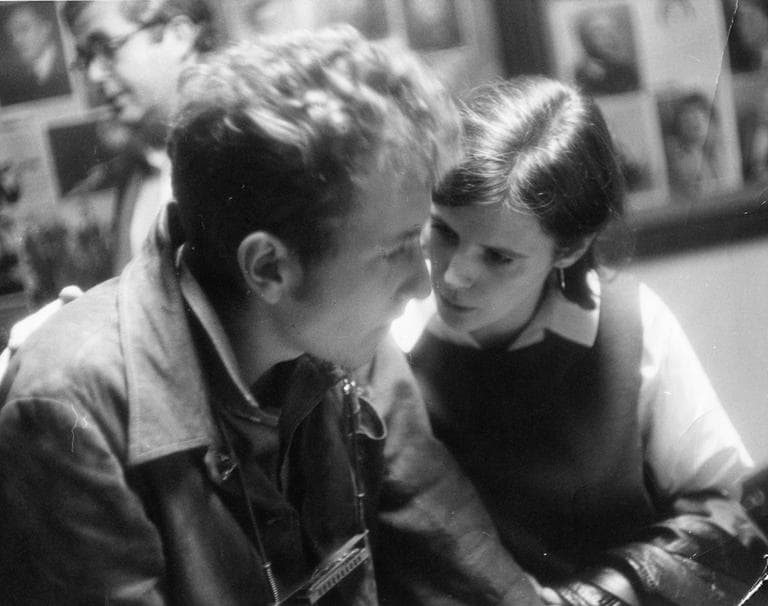Advertisement
1960s Folk Revival Comes To Light In New Documentary
Resume
In the late 1950s, a tiny coffeehouse in Cambridge became a Mecca for folk music in the U.S. Dozens of stars stepped through the doors of the 80-seat club and made it big.
Club 47 was started by two women from Brandeis University who were looking for a way to bring the smokey, intellectual coffeehouse flavor of a Paris home to the Boston area. Intending to make it a club for poetry and coffee, and with just $200 between them, they rented an empty store a few blocks from Harvard Square — what was then its dingy outskirts — at 47 Mount Auburn St.
"Club 47, for the decade that it was open, was the center of the folk scene, certainly here in New England. And we keep finding little pieces of it, little nuggets as we look back on it," said Rob Stegman, one of the directors of the film, "For the Love of the Music: The Club 47 Folk Revival," which is being screened at the Boston International Film Festival Tuesday night. Stegman directed the film along with Todd Kwait and with help from Betsy Siggins, who played an integral role in the club's operations.
"The youth culture of the time was ready for this," Stegman explained. "The rock and roll scene was not giving them what they wanted emotionally and culturally. To me it was one of those magical moments of time and place."
But it was more than that for folk music critic Scott Alarik.
"Club 47 was that youth rebellion beginning. It was young people dissatisfied with commercial culture, with the pop music industry looking for something deeper, more authentic, more real," Alarik said.
And in that unique time and place, real stars were born. Stars like a 17-year-old Boston University dropout Joan Baez.
The film uses previously unreleased recordings of Baez from the New England Folk Music Archives.
"The people who founded the club were somewhat elite in what they wanted the club to be," Stegman said. "They were bullied into giving Joan this audition and they were just blown away. And that turned the 47 from this left-bank French style coffeehouse to a classic folk scene."
And in 1962, an unknown, scrawny guy with a gravelly voice came knocking on Club 47's doors. Bob Dylan had hitchhiked up from New York City so he could play. He was such an unknown at the time that he sometimes wasn't allowed in to play. His first time on stage he played backup harmonica for other musicians.
"Club 47 was the place where stars were breaking at that time," Alarik explained. "It was seen as the place to go if you wanted to get discovered and wanted to be a star, which is one of things changed the energy of that club."
The list of performers who have a significant tie to Club 47 reads like a who's who of folk music greats, including Judy Collins, Gordon Lightfoot, Tom Rush, Taj Mahal and Peter Rowan. Many of the musicians rubbed off on each other.
"The way that every musician who played there has described it to me is that it was because it was this collegial atmosphere of just playing for the love of the music. They wanted to get together, share the songs, share the music," Stegman said.
"And there was a different kind of music there every night," Alarik added. "You didn't just become a blues fan at Club 47. You went down and you just washed yourself in all of it, and it all came out as this very new way of playing old folk music."
But while Cambridge became a folk lovers paradise, it also played a part in Club 47's undoing.
"By 1968, the entire idea of what folk music was was evolving, changing. There were pressures: commercial pressures, musical pressures. Dylan had gone electric, people were writing their own songs. And so really what was happening is that the folk scene got too large for this little 80-seat club," Stegman said.
But for Alarik, the real conflict was that as these stars were discovered, folk music became commercialized.
"As the '60s grew, it seemed like what had started Club 47, the real magic of Club 47, was no longer welcome in this new industry-driven folk music revival," Alarik said.
Club Passim has taken over the old Club 47 space, and in many ways carries on its tradition.
This program aired on April 17, 2012.
